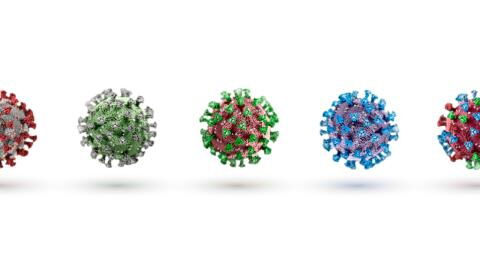Last year around this time, the world was gradually grinding to another halt after the detection of the Omicron variant in South Africa. Since then, the virus had mutated into various subvariants. So far, none of those mutations have been deemed significant enough to warrant their own name which would be Pi, the next letter after Omicron in the Greek alphabet.
Discover our latest podcast
‘That’s good news’
The next major variant after Omicron could emerge someday, scientists believe, although widespread vaccination and people developing natural immunity to the coronavirus could weaken it. Dr. Monica Gandhi, a professor of medicine and infectious disease expert at the University of California, San Francisco, told The Hill:
So that’s called hybrid immunity and that’s good news. When the population is so much more immune, the virus can make minor shifts in an immune population, but it can’t make major shifts.
However, the virus can continue to evolve in two major ways, one being transmission from animals. Although not widespread, the few documentations of animals spreading Covid-19 to humans and the fact that some domestic animals have caught the virus, means it can continue to mutate as it moves from host to host, Dr Gandhi added.

Lucking out
Another way the virus can evolve would be through long Covid infections especially among people whose immune systems have been compromised. According to a recent study, those long infections give the virus more time to replicate and make ‘rapid, multistage evolutionary jumps’. Any major mutation of the virus could turn into a new variant.
Should a new, more contagious variant arise, it would push out Omicron just as delta was dethroned last year. However, until that time comes (if it ever does), Dr Gandhi thinks we should ‘feel lucky’ to have weathered the storm, for now. Keep your fingers tightly crossed especially as it gets colder.
Sources used:
Independent: What is Pi? Covid’s next potential variant that could replace Omicron
The Hill: Where is pi, the next variant of COVID-19?















